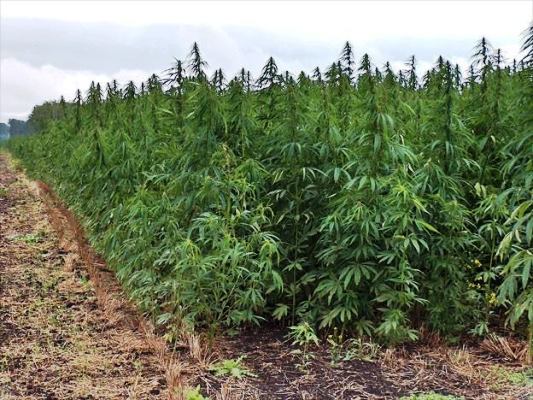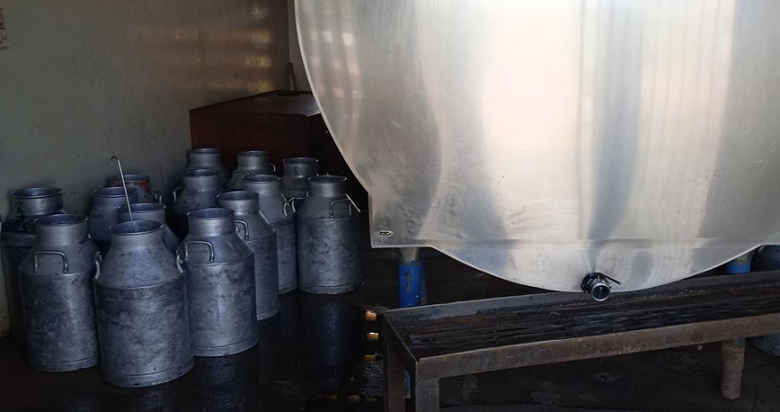Heliochem Pty Ltd, an Australian based firm has partnered with Medcan Uganda Ltd to grow medical cannabis (marijuana) in Uganda, Business Focus exclusively reports.
Heliochem is a subsidiary of THC Global Group Limited (ASX: THC), an ASX listed company, operating in the Health Care sector. It has been in business for over 15 years.
The company’s current focus is on the medical cannabis industry wherein it makes and delivers high-quality cannabis products to Australian patients.
Medical cannabis is a term used to describe the use of the
cannabis plant and its constituent cannabinoids to alleviate symptoms and help
people struggling with medical conditions.
Across the globe, cannabis is one of the most exciting growth industries and is
garnering significant attention from investors, manufacturers and researchers.
Heliochem has already applied to Ministry of Health and other relevant bodies for a license to grow medical cannabis in Uganda.
According to a letter dated May13, 2019 to Health Minister Jane Ruth Aceng and received the following day, Heliochem says establishing a medical cannabis industry in Uganda will undoubtedly generate numerous benefits and opportunities for the people of Uganda.
This site has also seen a letter to the Minister of Health by Stephen Miller, a Director at Heliochem Pty Ltd informing her that Medcan Uganda Ltd is authorized to act on its behalf in Uganda on matters relating to medical cannabis.
“Helicochem is set to commence operations in Lesotho and seeks to expand its operations through application for medical cannabis licenses in preferred environmental conditions of Uganda,” the leaked application letter reads in part.
The company that was founded by Nicholas Fiori wants to be a market leader in the cultivation and manufacturing of medical cannabis not only in Uganda, but on the African continent.
Business Focus understands that the company has already acquired 50 acres of land in Amuru district for this purpose. It intends to grow the medicinal weed both indoor/green houses and outdoor.
“At its core, the cannabis industry is an agricultural product which requires skilled farmers and master growers to produce cannabis crops on a large scale to a medical grade quality,” the letter further reads.
It adds that this presents an opportunity for jobs to be created in the agriculture sector by re-skilling farmers and generating further employment opportunities which are specific to the medical cannabis industry.
According to the application letter, Heliochem intends to invest in Uganda US$50-US$100m (Shs188.6bn to Shs377.3bn), but will invest about US$10m (Shs37.7bn) initially (in the first year).
The company will employ about 200 people and each will earn US$50-US$150 (Shs188,654 to Shs565,964) per day based on skill and position.
Heliochem has licenses to export medical cannabis to Germany, USA, Canada, United Kingdom and Australia.
Firms Scramble
It is understood that the number of international firms seeking to grow marijuana in Uganda to cash in on the growing multi-billion dollar business are growing every passing day.
This site understands that a number of local firms are also willing to venture into the lucrative weed.
Recently Daily Monitor reported that it had seen a Cabinet information paper by the Ministry of Health indicating that “the minister of Health has received applications from 14 companies interested in the cultivation, extraction and export of cannabis oil for medical purposes in line with the provisions of Narcotic Drug and Pyschotropic Substances (Control) Act 2015”.
The 14 are besides an already established firm, Industrial Hemp Uganda Ltd and
its partners, which have been in the country for the past decade with
operations in Kasese and other areas.
However, sources say about 26 companies have applied to grow marijuana in Uganda as of today.
“There is a big economic value potential for the country considering the rate at which countries are opening up their markets for the sale of cannabis products for medical purposes,” the Ministry of Health notes in the brief to Cabinet.
In the Cabinet document, the minister lists the benefits to include employment opportunities, taxes, technology transfer, investment opportunities, and trade surplus, among others.
For example, the paper notes, cannabis farming is labour intensive, all plant care and harvesting are done by hand, providing employment opportunities.
The Health ministry, however, warns that there is reasonable fear that legal cultivation of medical cannabis could lead to increase of the product, which will lead to escalation of cannabis abuse and associated consequences.
“The risks associated or resulting from the legal cultivation of cannabis are mitigated by the fact that cannabis is a highly controlled plant globally, regulations are overly strict, which ensures maximum adherence,” she adds.
In the Cabinet paper, it is proposed that the Minister of Health will issue written consent for the cultivation of prohibited plants, NDA will issue production and export licences and both the police and NDA will conduct inspection and enforcement of the law.
“As much as the area of cannabis cultivation and extraction on an industrial scale is new in Uganda, stringent measures are in place to regulate it. These projects will create jobs, bring in foreign currency, and above all there is no imminent threat to the people of Uganda or the environment if the measures put in place are adhered to,” the Health Ministry memo to Cabinet concludes.
The law
Section 14 Narcotic Drugs & Psychotropic Substance
(control) Act, 2019, which commenced on January16, 2019, empowers the National
Drug Authority (NDA) to issue licences for export, import, manufacture, etc.
(a) issue licences, for sale, manufacture, production or distribution of
specified narcotic drugs or psychotropic substances;
(b) prescribe the manner in which a narcotic drug or psychotropic substance is
to be packed or marked for export;
(c) prescribe the records to be kept for the export, import, receipt, sale,
disposal or distribution of a narcotic drug or psychotropic substance; and
(d) determine the line of narcotic drugs or psychotropic substances which may
be supplied and prescribed for medical, dental and veterinary purposes and
prescriptions.
Section 4 of the Act criminalises possession of narcotic drugs and psychotropic
substances and provides sanctions, including lengthy prison sentences and
fines.
Exceptions
The exception is in Subsection (3) “(a) a person
who has possession of a narcotic drug or psychotropic substance under a licence
issued under Section 27 of the National Drug Policy and Authority Act,
permitting him or her to have possession of the narcotic drug or psychotropic
substance;
(b) a medical practitioner, dentist, veterinary surgeon or registered
pharmacist who is in possession of a narcotic drug or psychotropic substance
for any medical purpose;
(c) a person who possesses a narcotic drug or psychotropic substance for a
medical purpose from, or using a prescription of, a medical practitioner,
dentist or veterinary surgeon; or
(d) a person authorised under regulations made under this Act to be in
possession of a narcotic drug or psychotropic substance.
Countries legally growing marijuana
Countries such as Uruguay, Canada, Lesotho, Zimbabwe, and
South Africa, some states in the United States, Germany and many other
countries in the European Union have legalised cannabis for medical use.
In Lesotho, for example, Cannabis is widely produced and is a leading cash crop
for the country. In 2017, Lesotho became the first African country to grant a
licence for the cultivation of medical cannabis for export. Currently, the UK
is the largest exporter of medical cannabis in the world. According to the
International Narcotics Control Board (INCB), 95 tonnes of cannabis was
produced in the UK for medicinal and scientific use, accounting for 44.9 per
cent of the world total
In Europe, it is grown in Austria, Denmark, Finland, France, Germany, Britain, Hungary, Poland, Portugal, Romania, Russia, Slovenia, Spain and Ukraine.






